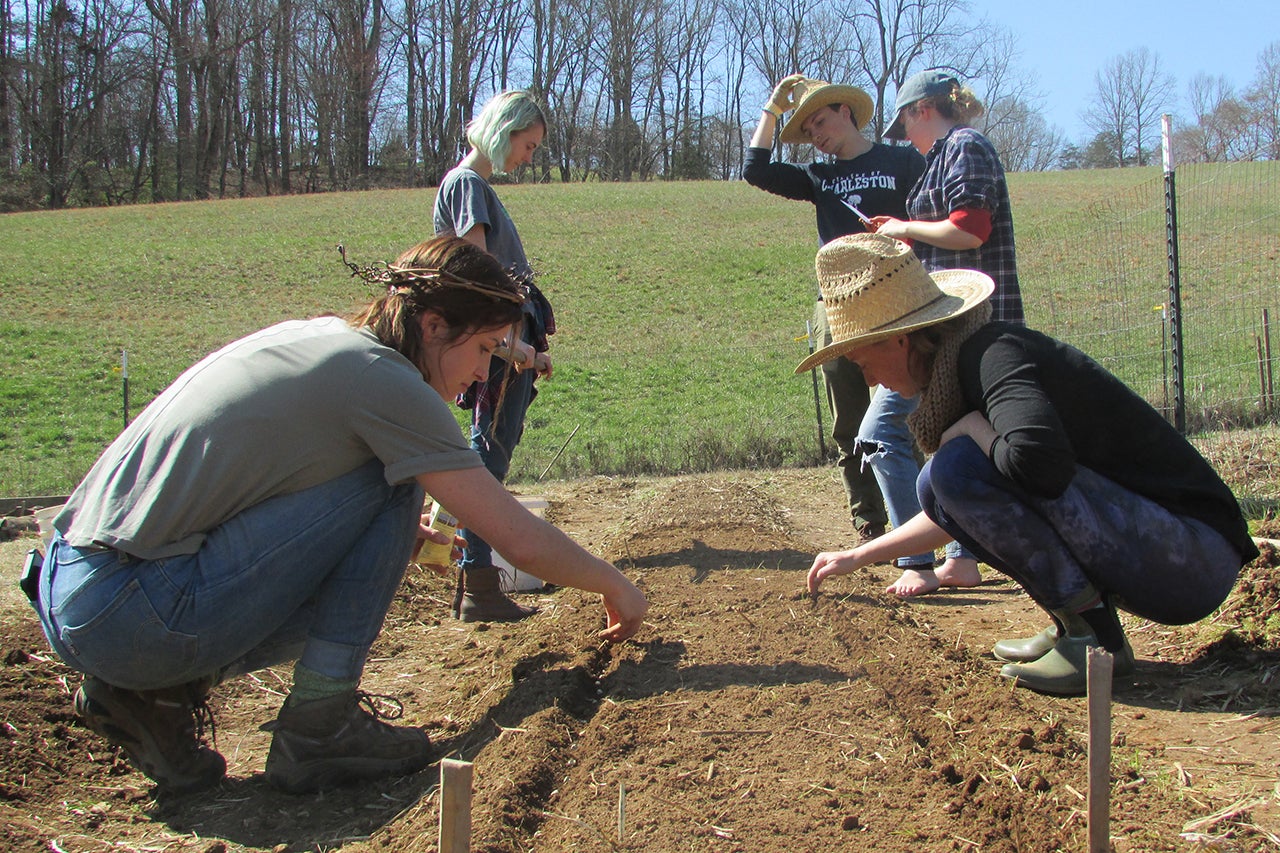Above: Students participate in a service project during an Alternative Break trip in 2018.
After a three-year hiatus due to the COVID-19 pandemic, the Center for Civic Engagement (CCE) at the College of Charleston is relaunching its Alternative Break Program with two planned trips in March 2023.
Designed and organized by CCE interns, the Alternative Break Program empowers students to progress from community members to active citizens through education, direct service and reflection. This year’s trips are as follows:
- How I Met Big Brother: An Exploration of American Historical Censorship
Washington, D.C., March 5-9 - Queer Resistance: Finding Joy as a Form of Liberation
New York City, March 6-11
Applications are due by noon on Monday, Jan. 23, 2023.
Part of the center’s mission, says Stephanie Visser, director of the CCE, is to create opportunities for students to cultivate a passion for positive social change. The Alternative Break Program provides students with an intentionally structured way to do this. The program begins with avenues of self-discovery, social awareness and social responsibility through education. Then students travel over spring break for community and service immersion, group development and cultural exchange. When they return to CofC, students participate in activities where they learn how to connect their what they’ve learned from the trips to the local community in meaningful ways.
“I am so excited that we have the opportunity to once again offer these experiences to students,” says Visser. “They have the potential to be truly transformative for our students – ultimately creating positive ripples of change for our campus and local community.”
CCE intern Liv Lott is coordinating the trip to Washington, D.C., where students will tour multiple museums and centers, including the United States Holocaust Memorial Museum, the National Museum of the American Indian and the National Gallery of Art, among others. The students will also visit Free the Facts, a nonprofit organization that educates young Americans about public policies that impact their lives and empowers them to create solutions.
Lott, who is a sophomore communication major and marketing minor, plans to engage students in conversations around what is – and is not – on display at the museums, and how censorship, whether intentional or not, shapes people’s understanding of history. She landed on the concept after learning about how a 1990s exhibit on the Hiroshima bombing at the National Air and Space Museum excluded a charred lunch box owned by a child who was three miles from the blast after U.S. veterans groups condemned the display for portraying the United States as the aggressor.
“We don’t think about how everything in those museums is carefully placed and carefully picked, and what that tells us about our American history and what that teaches us,” says Lott.
For Eliza Dinh, a CCE intern and senior English major with a concentration in creative writing, the inspiration for creating a trip exploring the queer community and culture in New York City was intensely personal.
“When I was brainstorming about what social justice focus the trip should be centered around, I thought about the conversations and moments I’ve experienced throughout the last four years that helped mold me into the person I am today,” says Dinh. “My journey from learning to accepting and embracing my queerness placed me in some of the most challenging, yet impactful times of my life. In a way, designing this trip feels like sharing and even discovering what I needed during the times when pride didn’t feel achievable.”
During the New York City trip, Dinh says students will visit a variety of sites, including the Leslie-Lohan Museum, the Oscar Wilde Bookshop, the New York City AIDS Memorial and the Stonewall Inn. Students will also participate in a service project with SAGE, a nonprofit dedicated to supporting LGBTQ+ adults age 60 and over, assisting in the group’s nightly dinner service.
“I hope students walk away from these experiences feeling empowered in who they are and their beliefs,” adds Dinh. “I think alternative break is a beautiful opportunity that allows students to engage in conversations and learning experiences in a very personal way that leaves an impact. I hope that impact is something they can take with them and spark joy in their everyday lives and the communities around them.”





